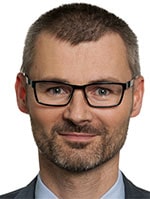Rating: Worth reading!
“Reading strengthens the soul.” – Voltaire
“When I feel bad, I don’t go to the pharmacy, I go to my bookseller.” – Philippe Dijan
“Reading is thinking with other people’s brains.” – Jorge Luis Borges
What is the most beautiful secondary thing in the world? If these three writers have their way, then probably: reading. But what should you read? What is particularly “worth reading”? Below you will find book recommendations by Antje Tomfohrde, Thomas Michl, Peter Rubarth, Astrid Kuhlmey, Dr Jürgen Schueppel, Cansel Soergens, Mario Hauff, Nadja Obenaus and Dierk Soellner.
Climate change and texting skills
Antje Tomfohrde, ocial media and communication expert
The first book recommendation is my personal non-fiction book of 2021: „Deutschland 2050 – Wie der Klimawandel unser Leben verändern wird“ (Germany 2050 – How climate change will change our lives) by Nick Reimer and Toralf Staud, published by Kiepenheuer & Witsch.
2021 is the year of the climate election in Germany and for this reason a number of books on the subject have been published this year. Of the books I have read on the subject this year, “Deutschland 2050” is the most important book for me. It describes in three scenarios how Germany will have changed by 2050 due to climate change if we do nothing and let everything continue as before, if we do a little bit but not ambitiously enough, and if we really go all out to still reach the 1.5 degree target by 2050. This is backed up by science and is informative and anything but dryly written. The two authors clearly know their stuff and do not limit themselves to describing possible scenarios for places far away, but describe what will happen on our doorstep. In the case of the town where I live, it became a reality this summer. Hagen is considered to be at risk from heavy rain and the book mentions a study by the TU Dortmund University, which examined how heavy rain could affect us here. And of course no one could have imagined that it would actually happen like this. It is a book that factually describes what can happen in the future, but at the same time encourages people to take action against it in order to turn the tide.
The second book recommendation goes more in the professional direction: „Texten können – Das neue Handbuch für Marketer, Texter und Redakteure“ (Know how to write – The new handbook for marketers, copywriters and editors) by Daniela Rorig, published by Rheinwerk Verlag.
I’ve been looking for a book on copywriting for a long time, one that doesn’t come across as dry and boring, but makes you want to write when you read it. Even though the title sounds a bit unwieldy, it delivers what I expected. On the one hand, it provides the necessary background knowledge and goes into what is important for a good text, how to find the way to your readers, what text formulas there are, how storytelling can be used and – also not so unimportant – what kind of copywriter, writer or author you want to be and what is good for. Writing a blog article is a little different from writing a caption for Instagram. Daniela Rorig provides examples that stick in your head and she gives you exercises to put together a text construction kit, for example. An entire chapter is dedicated to the topic of ‘Writing wittily while appearing serious’, which should not be underestimated, because seriousness is often still confused with dry-as-dust texts and tapeworm sentences. It is not a book that should be read in one go, but a book from which one can easily take a few chapters to work through or to look up something to give one’s own texts a breath of fresh air.
Parkinson’s Law
Thomas Michl, Principal Consultant s well as Agile Coach and Organisational Scout
If you ask me for my absolute favourite work-related literature, the first thing that comes to mind is a classic in organisational sociology. The book by Cyril Northcote Parkinson with the beautiful title „Parkinsons Gesetz und andere Untersuchungen über die Verwaltung“ (Parkinson’s Law and other studies on administration), published by Rowohlt Verlag.
First published in 1957, the book is – in my eyes – still topical. Even though Parkinson used the British colonial administration as a study object at the time, many aspects described there can still be found in almost all modern large bureaucratic organisations today. In addition to Parkinson’s Law, these include the Law of Triviality, the Coefficient of Incompetence, creeping office paralysis, and many more. The whole thing is described in the – for the time – usual black-British humour, which is reminiscent of Monty Python’s Flying Circus. It’s almost a pity that while many know Parkinson’s Law in its abstracted form, as a pure law, few know the book. It is an absolute treat of black humour and on top of that, insightful until the last page. A must for every well-stocked library if you are concerned with organisation, organisational development and structures.
Team Topologies
Peter Rubarth, Agile Coach
One of my favourite books is „Team Topologies: Organizing Business and Technology Teams for Fast Flow“, published by It Revolution Press.
Manuel Pais and Matthew Skelton describe four types of teams they have identified in the context of technology product development. These types are Stream-Alinged, Enabling, Complicated Subsystem and Platform. Based on these, they present three interaction modes for collaboration between teams. None of the ideas is radically new. The book provides a simple and precise vocabulary for looking at existing structures and developing them in a goal-oriented way. The basis of the observation is Conway’s Law and the connection between communication structures and software architectures described therein.
For me, the book manages the balancing act between concept and concrete assistance – without slipping into oversimplifying recipes. And that makes it well worth reading.
Corporate change and dreamers
Astrid Kuhlmey, Systemic Consultant
Favourite books for me are books that accompany or even trigger a turning point in my life. When I look at my current profession as a systemic consultant and coach for dealing with change, there was a time when the book „Change Management – Den Unternehmenswandel gestalten“ (Change Management – Shaping Corporate Change) by Doppler and Lauterburg (published by Campus Verlag) was my favourite.
To this day I enjoy reading it again and again and was even able to experience Klaus Doppler live in the context of “If Resistors Could Talk” at a very small and fine congress. Inspiring.
My absolute favourite, however, is not a technical book, but – as it says on the cover – „Die beste Zeit ist jetzt – Ein Buch für Träumer“ (The best time is now – A book for dreamers) by Sergio Bambaren (published by Piper Verlag).
The book reflects a lot of my own story. Financially secure, successful in my job, the question creeps in: what is my meaning, what dreams are there to live? Lovingly written, with beautiful statements about us and our (sometimes forgotten) dreams, I like to take it out when I realise that something new is about to happen. Bambaren describes in a kind of parable or fable the not always easy path of change that is triggered by an unexpected event. He shows honestly and yet attentively how we do not find it easy at all, even physically and emotionally, and he points out that change towards dreams is not a question of age, but one of following one’s own heart.
Small book, great writing and simply touching the heart. My current favourite quote is at the end of the story: “He decided to live here first, to fill his life with a wonderful new beginning, no matter how old – or how young – he was”.
Philosophy for the world of work
Dr. Jürgen Schueppel, Managing Partner and Change Management Expert
In our consulting and training projects as well as in our individual coaching sessions, I experience daily the tension that organisations and the people in them are under. Reflection is helpful here. And this is where Michael Andrick in „Erfolgsleere – Philosophie für die Arbeitswelt“ (Emptiness of success – philosophy for the world of work), published by Karl Alber Verlag, relentlessly puts his finger in the wound of our organisations, and explains this in detail, but without a raised forefinger.
I was particularly impressed by the argumentation that in the modern age, as basically free people, we subordinate ourselves to an organisational purpose and that a well-functioning reward system is established for this purpose, which fuels our ambition. The expression “ambition is the piety of the modern world of work” is one that I, as an ambitious person, have been putting behind my ears ever since I read it. Andrick’s statements about coaching have confronted me very directly in my role myself: Isn’t the coaching request also a desire to make an employee more adaptable in their behavioural repertoire to the conditions of the organisation? Since my reading, I ask myself more than ever: Do I want to accept the status quo like this? What is my attitude as a counsellor? How do I actually want it to be, and what objections do I raise and insist on? What am I convinced of and what do I stand up for?
The truth about motivation
Cansel Soergens, Business and OKR Coach
Microsoft paid authors to write the encyclopaedia “Encarta”. After 10 years, they abandoned the project and left the field to the competitor who had not spent a cent on the creation of its encyclopaedia and whose authors were intrinsically motivated: Wikipedia.
Intrinsic motivation is activated by the fact that I autonomously decide what I do, that I have the ability to implement it, and that I thereby contribute to something “greater”. In „Drive: The Surprising Truth About What Motivates Us“ (published by Canon Gate), Daniel Pink argues scientifically that autonomy, mastery and purpose are much more important as motivation than, for example, bonuses or company cars.
When I first read the book 7 years ago, it inspired me deeply. Since then, I have been helping organisations to create work environments where people can work in an intrinsically motivated way. This principle plays a big role for me and accompanies me every day when I advise organisations on their OKR implementations.
Feelings are not a disease
Mario Hauff, Angstlotse and Growth Companion
Life doesn’t have to stay hard when it started out hard. In „Gefuehle sind keine Krankheit“ (Feelings are not a disease), published by Ullstein Taschenbuch Verlag, Dr. Christian Peter Dogs uses his own life story to describe what natural resilience is. As an unwanted child, he was humiliated and beaten by his father in a perverse and vicious way, then betrayed again in adulthood, but he managed to make a respectable career up to the head of a psychosomatic clinic. As a self-confessed – benign – narcissist, he took many unusual paths along the way. His credo: “Take all your feelings seriously and live them without shame. Feelings are not a disease”.
What is interesting for me is how he illuminates basic human feelings differently. Right up to fear, where he shows original ways out for many conditions. Even fears of or about Corona, climate change or “change” become generally normal and manageable. For me, the book is above all one thing that is so important in my work as an anxiety helper: an enriching change of perspective.
The magic of digital facilitation
Nadja Obenaus, IT Consultant and D-Coach
Making complex things manageable: This mission is also behind the term digital facilitation.This addresses more than just digital moderation. A simple example of this is the switch from whiteboards and post-its to tablets and simple virtual session designs using whiteboards such as Miro, which I like to use in my retrospectives and agile team coaching sessions to enable real interaction.
In their paper „Unlocking the Magic of Digital Facilitation” (published by Impetus Books), Sam Killermann and Meg Bolger use the image of “nudging” together. Digital facilitation here means the wind and the waves that gently nudge or pilot teams and their creative processes in the direction of a common goal.
I have long liked the concept of piloting in relation to my role as a coach. Because it fits perfectly with my understanding of leadership, in the sense of servant leadership. Both are above all a matter of benevolent cooperation. Yes, AND… I recommend this book to all those pilots who want to be inspired or who want to become more deeply acquainted with their own part in benevolent togetherness.
Project Phoenix
Dierk Soellner, Business Coach
My favourite book is definitely „The Phoenix Project“ by Gene Kim, Kevin Behr and George Spafford, published by IT Revolution. The business novel about IT and DevOps is, in my view, required reading for anyone who works in IT. I devoured this book in three evenings. That is my personal record for technical books. Even though it is titled as a “novel”, it conveys a lot of useful knowledge for IT and that without any reference to the frameworks that are so beloved in IT.
I love it when I tell my customers about Brent Geller and they all confirm: “We have a Brent like that here too. Even though it’s an American-influenced book: In Germany, there are so many parallels and you can take away so many practical tips and hints. When mentor Erik Reid explains the three paths and the differences between planned and unplanned work, everyone working in IT immediately finds themselves in the same place.
What do you find worth reading?
Of course, opinions differ as to what is “worth reading”. Some will find this post worth reading, others may not. Personally, I am happy about every recommendation. In particular, the accompanying justifications add a personal touch. And that, in my view, deserves exactly one rating: worth reading!
Notes:
The idea for this article came from a question posed by Heiko Bartlog to the participants of the PM Camp Berlin. In no time at all I copied the idea. I may make such recommendations a topic here on the blog from time to time. Thank you, Heiko. 😉
Michael Schenkel has published other articles in the t2informatik Blog, including

Michael Schenkel
Head of Marketing, t2informatik GmbH
Michael Schenkel has a heart for marketing - so it is fitting that he is responsible for marketing at t2informatik. He likes to blog, likes a change of perspective and tries to offer useful information - e.g. here in the blog - at a time when there is a lot of talk about people's decreasing attention span. If you feel like it, arrange to meet him for a coffee and a piece of cake; he will certainly look forward to it!


